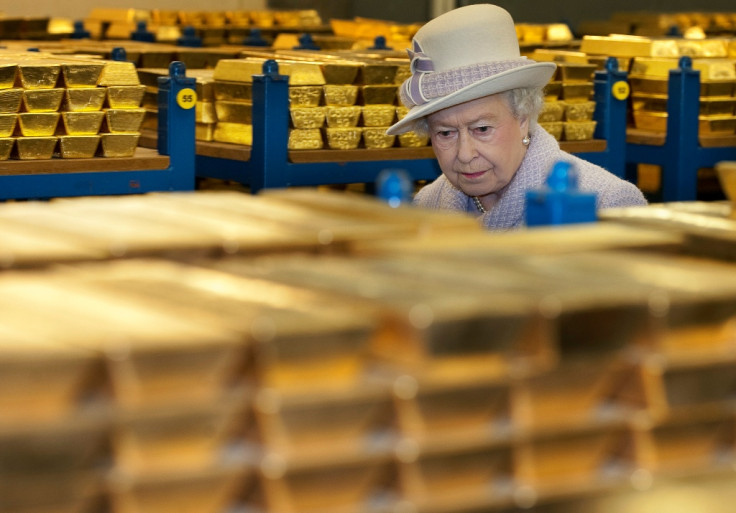Moody's MD Calls for Probe of London Gold Fix

The London gold fix, the long-standing process that determines the price of gold twice daily, may have been manipulated for 10 years by the banks setting it, researchers have said.
Unusual trading patterns around 15:00 hrs in London, when the so-called afternoon fix is decided on a private conference-call between five of the biggest gold dealers, suggests collusive behaviour and should be investigated, New York University's Stern School of Business Professor Rosa Abrantes-Metz and Albert Metz, a managing director at Moody's Investors Service, wrote in a draft research paper.
The research paper is the first to question the likelihood that the five banks overseeing the near century-old process – Barclays, Deutsche Bank, Bank of Nova Scotia, HSBC and Societe Generale -- may have colluded to manipulate the benchmark.
Pursued by Bloomberg, officials at London Gold Market Fixing, the company owned by the banks that oversee the fix, directed requests for comment to Societe Generale, which holds the rotating chairmanship of the group.
Officials at Barclays, Deutsche Bank, HSBC and Societe Generale refused to comment on the report and on the future of the benchmark.
Joe Konecny, a spokesman for Bank of Nova Scotia, did not respond to requests for comment.
At 15:00GMT on 27 February, the price was $1,332.25 an ounce. The rate-setting process is not regulated and the five banks can trade gold and its derivatives throughout the call.
FCA Probe
Abusive behaviour can occur in the physical commodity markets which in turn can have an impact on, or be directly linked with, financial market activity and prices
The research paper also mounts pressure on the firms to revamp the way the rate is calculated. Authorities around the world, already probing the manipulation of benchmarks from interest rates to the forex, are examining the $20tn (£11.96tn, €14.58tn) gold market for signs of misconduct.
The UK's Financial Conduct Authority is examining how prices are calculated. The regulator published a report this week detailing its remit for regulating commodities including gold, saying that while it is responsible for commodities derivatives, it does not regulate physical commodities.
"In general, research that finds certain price patterns does not as such constitute evidence of manipulation," said Thorsten Polleit, chief economist at Frankfurt-based precious-metals broker Degussa Goldhandel and a former Barclays economist.
"However, it might encourage interest in finding out more about the sources of these price patterns," Polleit told Bloomberg.
"This is a first attempt to uncover potentially manipulative behaviour and the results are concerning," Abrantes-Metz said. "It's down to regulators to establish why there are such striking patterns but banks have the means, motive and opportunity to manipulate the fixing. The results are consistent with the possibility of collusion."
"Abusive behaviour can occur in the physical commodity markets which in turn can have an impact on, or be directly linked with, financial market activity and prices," the FCA said in its report. "The regulatory regime -- both in the UK and internationally -- needs to be adapted to ensure robust and appropriate oversight."
"The structure of the benchmark is certainly conducive to collusion and manipulation, and the empirical data are consistent with price artificiality," they authors say in their research report, which has not yet been published. "It is likely that co-operation between participants may be occurring."
Bafin Probe
Deutsche Bank, Germany's biggest lender, said in January that it would withdraw from the panels determining the gold and silver fixings. German financial markets regulator Bafin interviewed the Frankfurt-based bank's staff as part of a probe into the probable manipulation of gold and silver prices.
The five banks that oversee the fixing have set up a steering committee and will appoint external advisers to consider an overhaul before EU legislation on financial benchmarks' regulation and oversight comes into effect.
The London fix is calculated twice a day on telephone conferences at 10:30 hrs and 15:00 hrs London time. The calls usually last 10 minutes but can last for more than an hour.
© Copyright IBTimes 2025. All rights reserved.






















